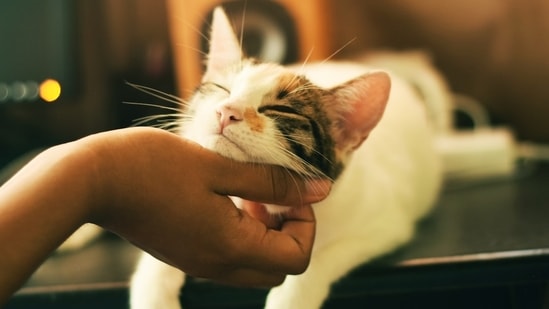Adopting a cat? Here's your complete guide to managing their diet, health and well-being
Bringing a cat or kitten home is thrilling. This guide provides key tips on feeding, exercise and care to keep your feline happy and healthy.
If you've recently welcomed a cat or kitten into your home, you might have many questions on how to best care for your new furry companion. Cats are wonderfully diverse creatures—fun, playful, independent, affectionate, curious, and often a source of endless entertainment. By seeking out information online, you're already showing that your pet is in great hands.

Caring for cats is generally straightforward and low maintenance. Once you get the hang of the essentials like feeding, litter box management, grooming, and health care, you'll find that all that's left is to enjoy and cherish your feline friend. To help you navigate this journey, here's your ultimate guide to pet cat care. (Also read: Is your pet constantly scratching and licking? Here's a multi-pronged approach to address skin issues in furry friend )
Expert Tips for Cat Care
In an interview with HT Lifestyle, pet nutritionist Anjali Kalachand shared, "If you are someone who lives a busy life, doesn't have time for outdoor daily walks, but crave the presence of a furry companion—someone you can indulge, look after, play with, and snuggle with—perhaps a cat is the right fit for you! Whether getting a cat or a kitten, please make sure your windows are netted before you bring them home. This ensures their safety so they cannot jump from heights, which could lead to injury. One of the things that often gets overlooked with cats, because we don't tend to take them for walks like dogs, is exercise and activity."
She added, "Invest in scratchers, tunnels, and cat trees that allow them to remain active even when indoors while avoiding destructive behaviour in the house. Some cats are well-adjusted and may enjoy the occasional outdoor walk on a nice harness, and one can also allow them to climb trees and do what comes naturally to them. Sedentary cats tend to put on weight, as they don't need to hunt for their prey either, which can lead to obesity and other health issues as a result."
"When getting home a new kitten, we would recommend not changing the food that was being fed by the rescuer or breeder. Kittens are growing and need to be fed more frequently than adult cats—up until 3 months, you can feed your kitten 5 times a day; from 3 to 5 months, you can feed your kitten 4 times a day; and at 6 months, you can adjust this to 3 times a day. Many adult cats also eat 3 times a day; however, if your cat is a picky eater, you might consider changing this routine to twice a day as well," says Anjali.
What is the best thing to feed your cat or kitten?
"I'm not a big fan of dry food when it comes to cats, here's why - there is a rising incidence of Feline Urinary Tract Disease in cats - which is due to lower moisture intake. So cats are desert animals and don't naturally gravitate towards their water bowl. The advent of dry food has seen a rise in FLUTD due to the fact that the food is also devoid of moisture, whereas if cats were hunting for their prey, for eg, those meals would be moisture-rich. Cats are obligate carnivores, which means they don't need starchy carbohydrates in their diet - however, kibble tends to be made using starchy carbohydrates as fillers, causing a rise in obesity and other lifestyle diseases in cats. Therefore, as much as possible, try to feed your cats fresh meals," says Anjali.
She further explained, "A meal can consist of one main meat protein, some organ meat, veggies for fibre and perhaps some fish for omega three fatty acid content, try and include bone broth in the meals as well for added moisture intake and general overall gut health and immunity and some bone powders or pastes for calcium and other minerals. Fatty acids are also important for them, so one can add a rotation of oils ranging from fish oil, hempseed oil, safflower oil, and coconut oil, to name a few."





